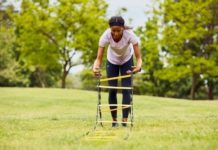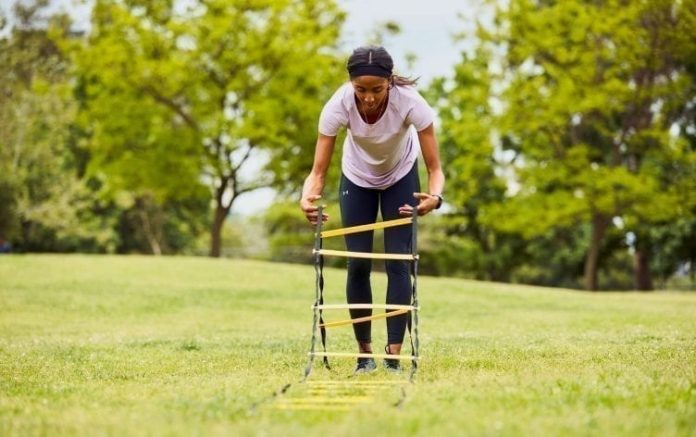
Now that the days are longer and temperatures are warmer, the pull to spend time outdoors is strong. For the 50 million Americans who suffer seasonal allergies, symptoms like sniffling, sneezing and itchy, watery eyes can ruin an afternoon hike or stand-up paddleboarding.
“If you have nasal congestion, you may revert to mouth breathing, which is less efficient and prevents the filtering of pollutants and other allergens,” explains Dr. Clifford Bassett, medical director of Allergy and Asthma Care of New York and author of “The New Allergy Solution.”
Instead of hiding indoors until winter, follow these six tips to keep seasonal allergies from ruining your outdoor workouts.
1
PAY ATTENTION TO THE POLLEN COUNT
The pollen count refers to the particles of pollen per cubic meter of air; the higher the pollen count, the more likely you are to experience allergy symptoms. A pollen count over 1,500 is considered high. The American Academy of Allergy, Asthma & Immunology provides real time pollen counts nationwide on its website.
“If you get a little runny nose and sneezing, it may not be that important [to check pollen counts before an outdoor workout] but if you get severe nasal congestion and asthma, it’s very important,” says Dr. Cristina Porch-Curren of Coastal Allergy Care in California.
2
SHIFT YOUR SCHEDULE
The pollen count is highest in the mornings and working out between 5 a.m. and 10 a.m. could exacerbate your allergy symptoms. Shifting your workouts to later in the day — scheduling outdoor exercise in the evenings is best — can make it easier to breathe while you’re working up a sweat.
“Windy, dry and clear days may allow more pollen to be blown around (and into your eyes and nose) than wet, rainy and cloudy days,” says Bassett. “Check the daily pollen counts and air pollution alerts to plan outdoor activities.”
3
RETHINK YOUR ROUTE
When it comes to minimizing exposure to pollen, the location of your workout is as important as the timing. Your allergies might be more intense in urban areas. Both temperatures and carbon dioxide levels are higher in cities, which causes ragweed plants to grow faster, flower earlier and produce more pollen than ragweed in rural areas, according to research published in the journal Environmental Health Perspectives. Pollen counts are also greater at higher elevations and in areas with abundant vegetation like parks and forests. In other words, suburban streets are the safest bet if you have severe allergies.
4
CHOOSE THE RIGHT WORKOUT
Lower intensity exercises (Think: outdoor yoga, stand-up paddleboarding or a walk in the park) are better options than more strenuous workouts when pollen counts are high. On days when your allergy symptoms flare, Porch-Curren suggests heading to the gym, explaining, “Indoor exercise is definitely an option and if somebody is very symptomatic it’s the best option.”
5
KEEP IT CLEAN
Wearing a hat and sunglasses can keep pollen from getting into your face and eyes; showering and washing your hair after outdoor exercise rinses off pollen and keeps you from sniffling and sneezing long after your workout ends. Porch-Curren also suggests using nasal saline spray to rinse the pollen from your nostrils.
You should toss your workout gear in the wash — and choose the hot water setting, if possible. Research found washing laundry in hot water (at least 140ºF/60ºC) was most effective for removing allergens, including pollen.
6
GET THE RIGHT PRESCRIPTION
No one wants to spend months sniffling and sneezing. Before you reach for the nearest over-the-counter remedies, make an appointment with your doctor. There are several different medications to help manage your allergy symptoms.
“Many allergists offer immunotherapy [shots, tablets or drops] to expose you to specific allergens in slowly increasing doses and allow your immune system to build up an immunity,” Porch-Curren says. “We are able to reverse the allergic process in many patients with this type of therapy and they are then able to decrease or even stop their allergy medication.”
With the right medication and some preventive strategies, you can enjoy outdoor workouts all season long.







